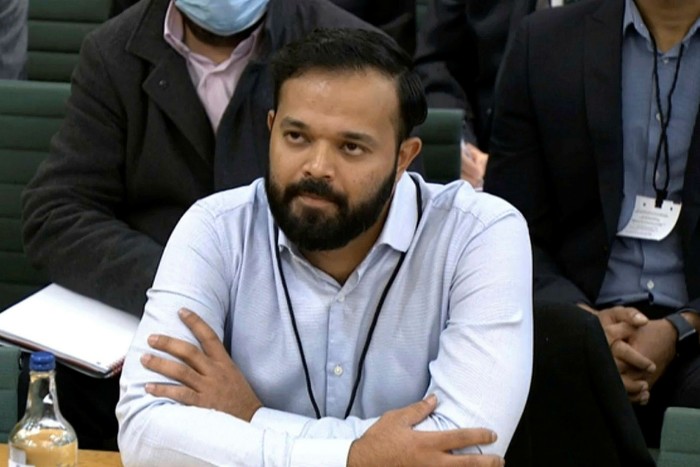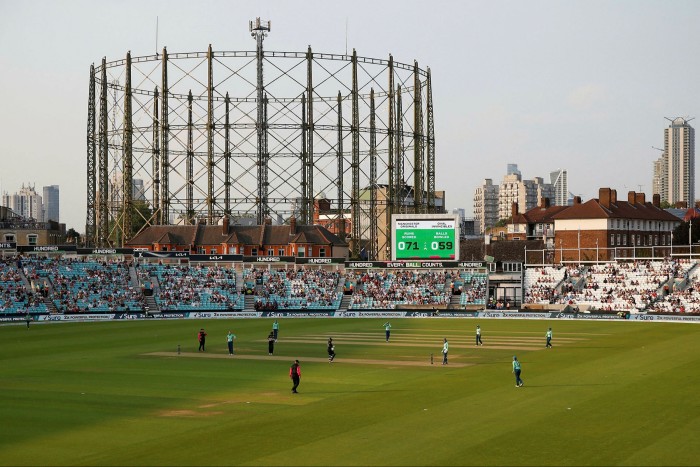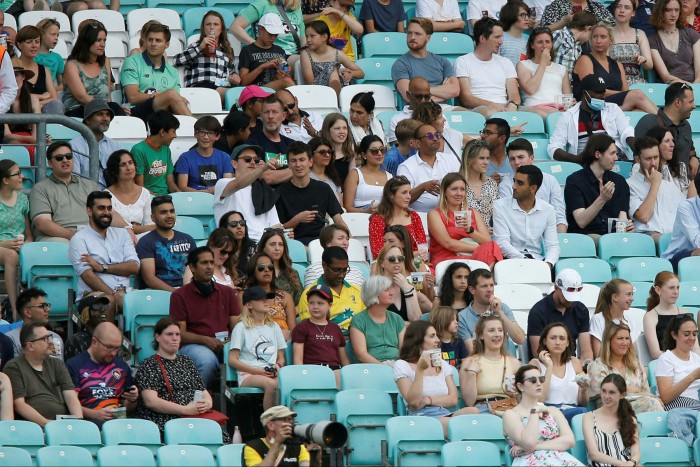English cricket’s diversity failure delivers new blow in testing times

Roula Khalaf, Editor of the FT, selects her favourite stories in this weekly newsletter.
Tom Harrison, chief executive of the England and Wales Cricket Board (ECB), the sport’s national governing body, delivers a sombre verdict: “All is not well within the game.”
He is speaking from Sydney in December, midway through the men’s Ashes Test series, in which Australia will go on to thump England.
The losing tour was a sour note at the end of a tumultuous year for English cricket — and has since led to the national team’s managing director, Ashley Giles, and men’s coach, Chris Silverwood, leaving their posts this week.
Harrison had steered the ECB through the coronavirus pandemic, which ravaged the finances of sporting bodies worldwide. English teams faced months of playing in a “biosecure bubble”, largely cut off from the outside world.
This period was so strenuous that Ian Watmore resigned as ECB chair in October after barely a year in the role, citing the toll caused by Covid-19 on the sport.
That left Harrison alone to face a new crisis triggered by Azeem Rafiq, a former player who exposed a racism scandal at Yorkshire County Cricket Club, one of the biggest sides in the country.
Speaking in front of MPs in November, Rafiq tearfully revealed he had been subjected to racial slurs from teammates, while receiving little support from the club’s coaches and executives.
Harrison’s lawyerly responses to the same parliamentary committee — particularly the charge that the ECB should have intervened earlier in Yorkshire’s now-discredited investigation into the allegations — led to intense criticism.
The government threatened to trigger a “nuclear option” of creating an independent cricket regulator, which would have stripped the ECB of many of its powers. Harrison resisted calls to resign.
“I was focusing on . . . making sure the sport was able to deliver a summer that didn’t plunge it into a financial crisis,” says Harrison, conceding the ECB should have investigated Rafiq’s allegations earlier.

Still, Harrison says “the vast majority of counties . . . accept there is a problem” with the lack of diversity in English cricket. The facts are stark: one in three people in the UK who play recreationally are from Asian backgrounds; the figure falls to 4 per cent for those with a professional contract.
The Rafiq scandal is an opportunity for cultural change, reckons Harrison.
The ECB and its member counties have agreed a 12-point plan, including a standardised approach to investigating whistleblowers’ complaints and ensuring that young ethnic minority cricketers from less-privileged backgrounds can turn professional.
Asked how he will enforce the plan, Harrison says there are “levers to pull”, pointing to how the ECB has stopped playing international matches at Headingley, Yorkshire’s home ground, until the county cleans up its act.
He is willing to “put his job on the line” if progress is not made.
But while “the autumn was a nightmare”, says Harrison, the summer was a triumph. By being able to stage the majority of England’s international matches, the ECB protected most of its income from a £1.1bn, five-year domestic television rights deal, with Comcast-owned Sky and terrestrial broadcaster the BBC.
In August, the ECB staged the inaugural edition of The Hundred, the new tournament in which each innings is 100 balls. Even shorter than the popular Twenty20 games, which last about four hours, it is a yet more accessible format than Test matches, which can stretch over five days.

The Hundred was strongly opposed by the game’s traditionalists. It is played between city-based franchises, rather than existing county clubs, and they field both men’s and women’s sides.
The ECB hoped the radical concept would draw audiences beyond cricket’s established demographic of middle-aged men. Over the first month-long tournament, more than 16mn people watched on TV, while some 500,000 attended matches in person.
Roughly 60 per cent of spectators at grounds were under 45, with women making up about a fifth.

Harrison wants to make the tournament a fixture of the British sporting summer. “It’s not unfeasible that The Hundred ends up with its own window,” he says, suggesting the match calendar could be rearranged to ensure it does not clash with big international games.
“[But] I think that needs to be done in the context of keeping Test cricket absolutely at the pinnacle of our sport.”
Even with such an assurance, any further focus on The Hundred risks angering critics who believe one reason the England team failed so miserably in the Ashes was that short-form contests have sidelined the County Championship.
That longstanding competition comprises four-day matches that act as a breeding ground for Test players. But its fixtures have been curtailed to make room for more lucrative formats.
The primacy of Test cricket was dealt another blow in September. The final match of the series between England and India was cancelled just hours before play, after members of the touring party tested positive for coronavirus.
Sceptics pointed out that the cancellation allowed players to travel for the start of the Indian Premier League — the money-spinning Twenty20 contest in which stars such as India’s Virat Kohli earn millions of dollars.
“I just don’t believe [the cancellation] had anything to do with the IPL,” Harrison insists. “It had more to do with . . . exhaustion, the length of time India had been in England and . . . fear around an outbreak of Covid in the camp.”
Still, the ECB agreed to the demands of the Board of Control for Cricket in India, that country’s governing body, and rescheduled the Test for this year. Many viewed this compliance as another signal of India’s dominance over the world game.
So far, the BCCI has not allowed Indian players to take part in The Hundred, which it sees as a rival to the IPL, denting the English tournament’s global appeal. “I think it is a political challenge for them,” says Harrison. “It’s about control, ultimately.”
He is optimistic that maintaining close ties with India will result in a change of heart. It is another example of the difficult terrain the ECB must negotiate to achieve its goal of growing the game.
“Cricket in England and Wales should be a massive sport, and it’s nowhere near where it needs to be,” Harrison says.
“We need to listen to what people are telling us about how we make this game bigger.”
Weekly newsletter

Scoreboard is the Financial Times’ new must-read weekly briefing on the business of sport, where you’ll find the best analysis of financial issues affecting clubs, franchises, owners, investors and media groups across the global industry. Sign up here.

Comments